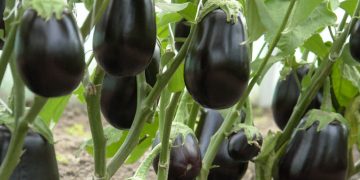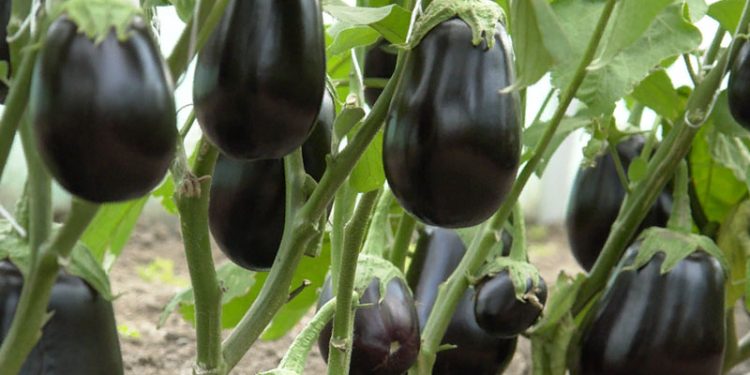#Eggplant #Agriculture #CropProduction #Farming #IntegratedPestManagement #SoilPreparation #Harvesting #PestsandDiseases
Eggplant, also known as aubergine or brinjal, is a versatile and delicious vegetable that has been grown for centuries. However, producing a successful crop of eggplants requires knowledge and expertise. This article provides a comprehensive guide to eggplant production, covering everything from planting to harvesting.
Eggplants are an important crop for many farmers around the world. According to the Food and Agriculture Organization of the United Nations (FAO), global eggplant production in 2019 was over 54 million tons. China is the largest producer, followed by India and Egypt.
To produce high-quality eggplants, it is essential to choose the right variety. There are many different types of eggplants available, each with its own characteristics and growing requirements. The University of California Agriculture and Natural Resources (UCANR) provides a helpful guide to selecting eggplant varieties based on factors such as fruit size, shape, and color.
Once you have chosen your eggplant variety, it is important to prepare the soil correctly. Eggplants thrive in well-drained, fertile soil with a pH between 5.5 and 6.5. The University of Florida IFAS Extension recommends adding organic matter to the soil, such as compost or manure, to improve fertility and water retention.
Eggplants are a warm-season crop that requires plenty of sunlight and heat to grow. They should be planted after the last frost in your area, typically in late spring or early summer. The University of Minnesota Extension recommends planting eggplants in rows that are 2 to 3 feet apart, with 18 to 24 inches between plants.
Eggplants are prone to a variety of pests and diseases, including flea beetles, aphids, and verticillium wilt. Integrated pest management (IPM) techniques can help to control these problems while minimizing the use of chemical pesticides. The University of Massachusetts Amherst provides an excellent guide to IPM for eggplant production.
Harvesting eggplants at the right time is crucial to achieving a high-quality crop. According to the University of Illinois Extension, eggplants are ready to harvest when they are fully grown, glossy, and firm. Overripe eggplants may become bitter or develop tough seeds.
Producing a successful crop of eggplants requires careful planning and attention to detail. By choosing the right variety, preparing the soil correctly, managing pests and diseases, and harvesting at the right time, farmers and agricultural professionals can produce high-quality eggplants that are delicious and nutritious.































